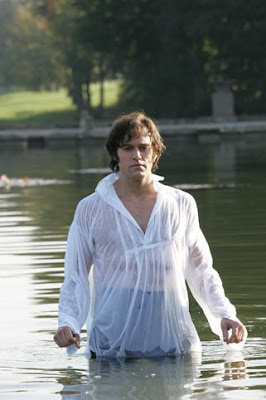As
I’ve said before in my review of Sarah Mason’s other book, Society Girls, Playing James is a great British chick lit book I
would definitely recommend to people. The characters were varied, funny,
loveable and pretty well developed (it is chick lit after all; I’m not exactly
expecting Pulitzer Prize-winning material here). The plot moved along quickly
with plenty of hilarious snafus and the ending left me satisfied. In the
sequel, the Colshannon sisters were up to their usual adventures, but it just
didn’t have the same oomph.
Party Girl does not
pick up where Society Girls left off, nor does it have any of the same
characters. Instead, it follows Isabel (I kid you not, I had to look up her
name. That’s how memorable she is), a party planner in London who is requested
to plan an event for a family she spent her childhood with. The estate she
spent her summers on now holds bitter memories, all because Simon Monkwell
flipped from best friend to bitter enemy in a matter of weeks.
The problem with this
novel does not lie with the hijinks or the plot. It lies with the main
characters themselves, who are just trite. It’s pretty bad when the only word
you can come up with to describe your protagonists is “trite.” Simon is now
this businessman with a ruthless reputation, which in the grand tradition of
chick lit is revealed to be a façade. I apologize to those of you yelling “spoiler
alert” at your computer screens, but if you can’t see it coming, I think you
need to read more. He has a hybrid between an icy attitude and cool politeness
aimed toward Isabel, yet she’s supposed to be in “like” with him. They’re also
supposed to have chemistry, especially once Isabel understands why he acted the
way he did, but I just didn’t feel it. The chemistry between them is just not
palpable.
The lack of chemistry
could be attributed to the boring Isabel and Simon. I hate to compare Party
Girl to Playing James, but I just can’t help myself. While James Sabine was
cynical and uptight, he was the perfect antithesis to Holly Colshannon’s
chaotic whirlwind of a life. His wry and dry comments made everything that much
funnier (think House, Chandler or Frasier in terms of witty quips). Simon is
just boring and Isabel isn’t much more memorable. I take it as a bad omen that
I had to look up her name because I couldn’t remember it for the life of me.
It’s left to the crazy
relatives to carry the weight and offset Simon and Isabel’s “relationship” by
making irrational decisions, creating comedic mishaps and shaking up everything
with their eccentric personalities. At one point, there is a tarantula loose in
the house, which causes panic and mayhem among the residents. There was a great
opportunity for a tension-filled romantic scene between Simon and Isabel, but
because they’re boring, nothing happens. Go figure. If it weren’t for the
stereotypical, yet still enjoyable, crazy family members and coworkers, this
book would have fallen on its face faster than a drunk giraffe on roller
skates.
It is important to
remember that this is a fluff novel. It doesn’t need the substance other novels
need, as long as it makes the reader happy and leaves them feeling warm and
squishy inside. Party Girl did not leave me feeling happy, just bored.
This brings me to an
interesting question: how do you qualify boring? Boring is subjective. What you
might qualify as boring (baseball, fishing, most nonfiction, vanilla ice cream)
others might qualify as some of their favorite things. In the end, it comes
down to what you think is boring. If you can’t handle the craziness of the
Colshannon family or don’t like eccentric characters, you might like this novel
more than Sarah Mason’s other novels. However, if you can’t stand a single
moment of normalcy, I would recommend Sophie Kinsella or Jill Mansell. You can
still pick up this book, but be warned that not even the cringe-worthy scenes can
make up for the love story that is lacking.

